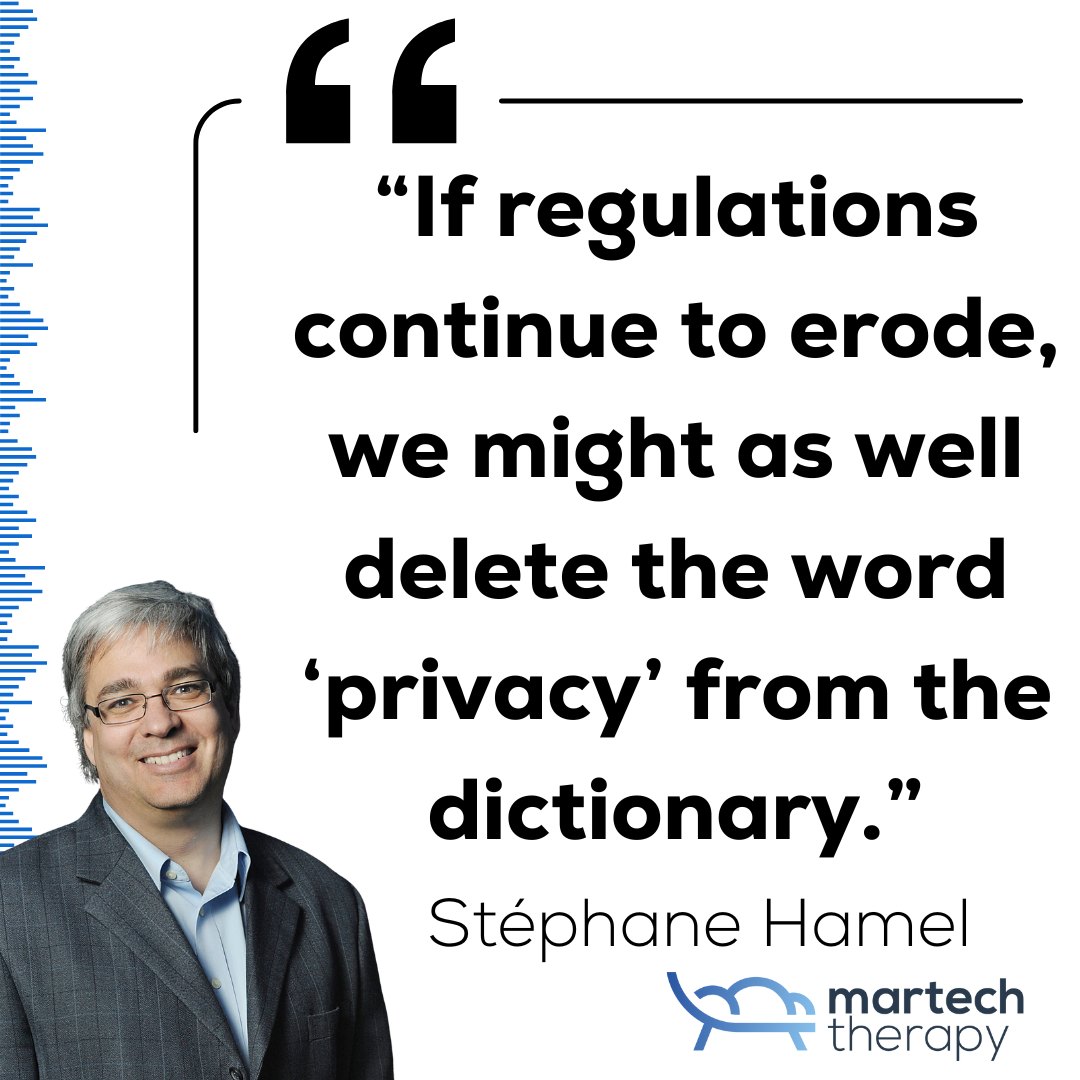It’s not every day you get to sit down with someone whose career has left a definitive mark on the Martech and analytics landscapes. In the latest episode of Couch Confidentials, brought to you by Martech Therapy, I had the privilege of reconnecting with Stéphane Hamel, an old friend and a thought leader whose influence spans decades, from crafting the renowned Digital Analytics Maturity Model to becoming an advocate for privacy and ethics.
Stéphane and I go way back, having first met at a Web Analytics Summit in Amsterdam during the days when Webtrends was a huge player (yes, that long ago!). Fast forward to today, and his work continues to challenge the norms of how businesses handle data and rethink their responsibilities in a world shaped by privacy regulations and Big Tech power plays.
Our conversation explored the stark differences in how North America and Europe approach data privacy. Stéphane noted that Europe’s GDPR has set the gold standard for protecting consumer rights, while the US faces a potential future of further deregulation, with Big Tech gaining even more freedom to operate unchecked. Stéphane said “There’s little difference between selling t-shirts and selling an election. Both rely on the same mechanisms of persuasion—one just carries far greater consequences.” The implications for users, Stéphane continues, could be dire. “If regulations continue to erode,” he remarked, “we might as well delete the word ‘privacy’ from the dictionary.”
One of the most intriguing moments was when Stéphane shared a personal experience of being asked for a voice confirmation during a furniture delivery, a vivid example of how biometric data, like voice, is increasingly being leveraged. “Your voice is a biometric, and cloning it is shockingly easy,” he pointed out, raising concerns about how such sensitive data is stored, used, and protected in everyday scenarios.
Yet, amidst the challenges, there were glimpses of hope. Stéphane spoke about the potential of zero-party data models, where individuals control their own information, choosing when and with whom to share it. This shift, he believes, could represent a more ethical and sustainable path forward for both businesses and consumers.
From the alarming realities of data leaks and consumer manipulation to hopeful visions of a more privacy-conscious future, this conversation explored the responsibilities of marketers, governments, and individuals alike. As Stéphane so powerfully stated, “Marketing should be about trust. Without it, it’s just manipulation.”
Stéphane’s insights are a wake-up call, reminding us that the future of privacy is not someone else’s responsibility—it’s ours.



Discussion